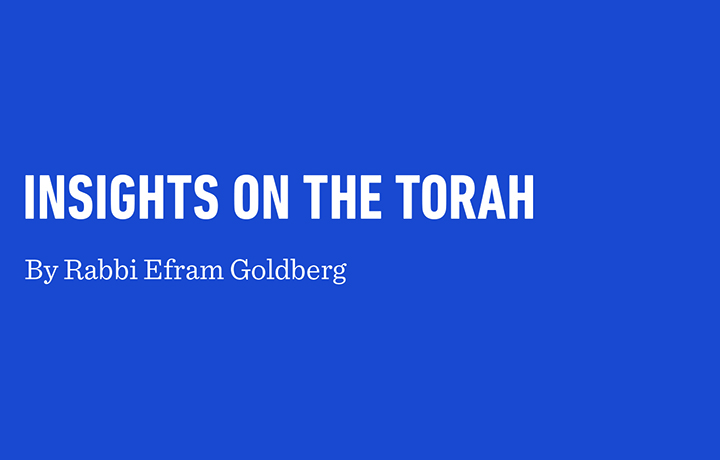Common Ground: A Conversation With Rabbi Arieh Friedner
“Common Ground, authored by Rabbi Arieh Friedner, is a transformative guide to unlocking the secret to Jewish unity. Drawing from decades of teaching and mentorship, Rabbi Friedner shares practical insights on how to connect with Hashem and forge strong bonds with all of Am Yisrael on a global and inspiring level. This inspiring work contains actionable steps for self-discovery, increasing kindness, gaining perspective, and spiritual growth” (publisher’s description).
Recently, the Five Towns Jewish Times featured an in-depth review of this inspiring work. We have the pleasure of introducing our readers to Rabbi Friedner, who is a brilliant talmid chacham, in this week’s column.
Rochelle Maruch Miller: What motivated you to write Common Ground?
Rabbi Arieh Friedner: To be honest, it really hurts me when the Jewish people aren’t getting along with each other. I grew up going to a Conservative Jewish Day School, went through Jewish rebellion in my teenage years, and only discovered inspirational Judaism when I went to study in Israel at 19. Then I ran NCSY in Cleveland for over a decade. There’s a lot of misunderstanding across denominations and we’re much closer to being one people than we realize. I wrote this book to take a step toward bridging these gaps throughout our community.
RMM: What makes Common Ground unique?
RAF: What makes the book unique is that it’s not just a to-do list about the things we can do to treat other people better or how to build a stronger relationship with another Jew. And it doesn’t assume that our role is just to do something narrow like overcome our drive for negative speech about others—even though that’s a profound and crucial element. Common Ground is a comprehensive roadmap outlining how the entire Jewish people can truly be on the same page with one another.
It focuses on how we view ourselves and our responsibility for growth in a way where we can understand how to give other people space they need to develop their own relationship with G-d. Not everybody has to be like me—even if there are certain things that we may all “have to do.” The goal of the book is to show how it’s possible to accept all other Jews without breaking your own understanding of what Hashem wants from all of us.
RMM: What aspect of authoring the book did you find most rewarding?
RAF: The most rewarding part of authoring this book is knowing that it is creating more conversations about Jewish unity. Part of Hashem’s glory is going to be hidden from us to the extent that we can’t find Him through each other. It’s not a small thing that the second Beis HaMikdash was destroyed because of baseless hatred. We have to get this right. Knowing that this book is getting more people to think about how to love each other makes me proud that we can all get a little bit closer to G-dliness through our connectivity.
RMM: What feedback has Common Ground elicited thus far?
RAF: Some of the early feedback I’ve received from readers is that they’ve shared messages and stories from the book with their children! I think everyone cares deeply about Jewish unity but it can be hard to find its application. It can seem too big. I’ve been so excited to see that readers have immediately gravitated toward sharing these ideas with their kids! We all want our children to grow up with eyes full of love for other Jewish people. I’ve always learned most from the experiences I’ve had in life, and to hear that some of these stories are inspiring people to motivate their children to love other Jews makes me so hopeful for our next generation. We need to study this material in order to set up our children in the right environment to greet Mashiach.
RMM: What is the message you would like to convey to our readers?
RAF: After the catastrophe of Simchas Torah 2023, the stories started to come out about the heroic sacrifices people made for each other. Stories started to come out about acts of greatness and unity across the Jewish community. But like any emotional reaction, it is only as strong as the event is still in our active memory. That means the further away we get from October 7, the further we have already moved from those acts of togetherness.
We have both a heart and a mind for a reason. Our emotional reactions can show us how deep we are—but we need our intentionality to make things stick.
And that’s what I think this book is. It is a script to rehabilitate the broken hearts of the Jewish people. It’s a way to take practical steps in healing the wound that exists between us and other Jews, between us and other family members, and even between us and ourselves. The goal is to bring us back together, and we have to try to do everything we can right now. Now that we know how deeply we can care about each other, we have to train ourselves in how to make it permanent.
RMM: How can we impact on Jewish unity?
RAF: Jewish unity might be something we perceive as too lofty or “messianic”—too difficult to achieve with any immediacy. But the truth is, we’re not absolved from doing everything we can do to improve the situation right now. We must be our own leaders. If every single person would do whatever they could to mend their relationship with one another, we could be unified. Even a person’s simple actions will take us very far, and maybe that’s as far as Hashem needs us to go. Maybe all we have to do is prove our desire to improve the situation for Him to take us the rest of the way.
For all we know, we are on the precipice of this Messianic era, and all Hashem is waiting for us to do is to take this more seriously.
RMM: Thank you so much, Rabbi Friedner, for authoring this elucidating and erudite work and for sharing your insightful thoughts with our readers. I wish you continued nachas from your beautiful family and hatzlachah in all your endeavors.
RAF: Thank you, Rochelle. I wish you the same.
Rochelle Maruch Miller is a contributing editor for the Five Towns Jewish Times. She is a journalist, creative media consultant, lecturer, and educator, and writes for magazines, newspapers, websites, and private clients. She welcomes your comments at [email protected]. Read more of Rochelle Miller’s articles at 5TJT.com.













